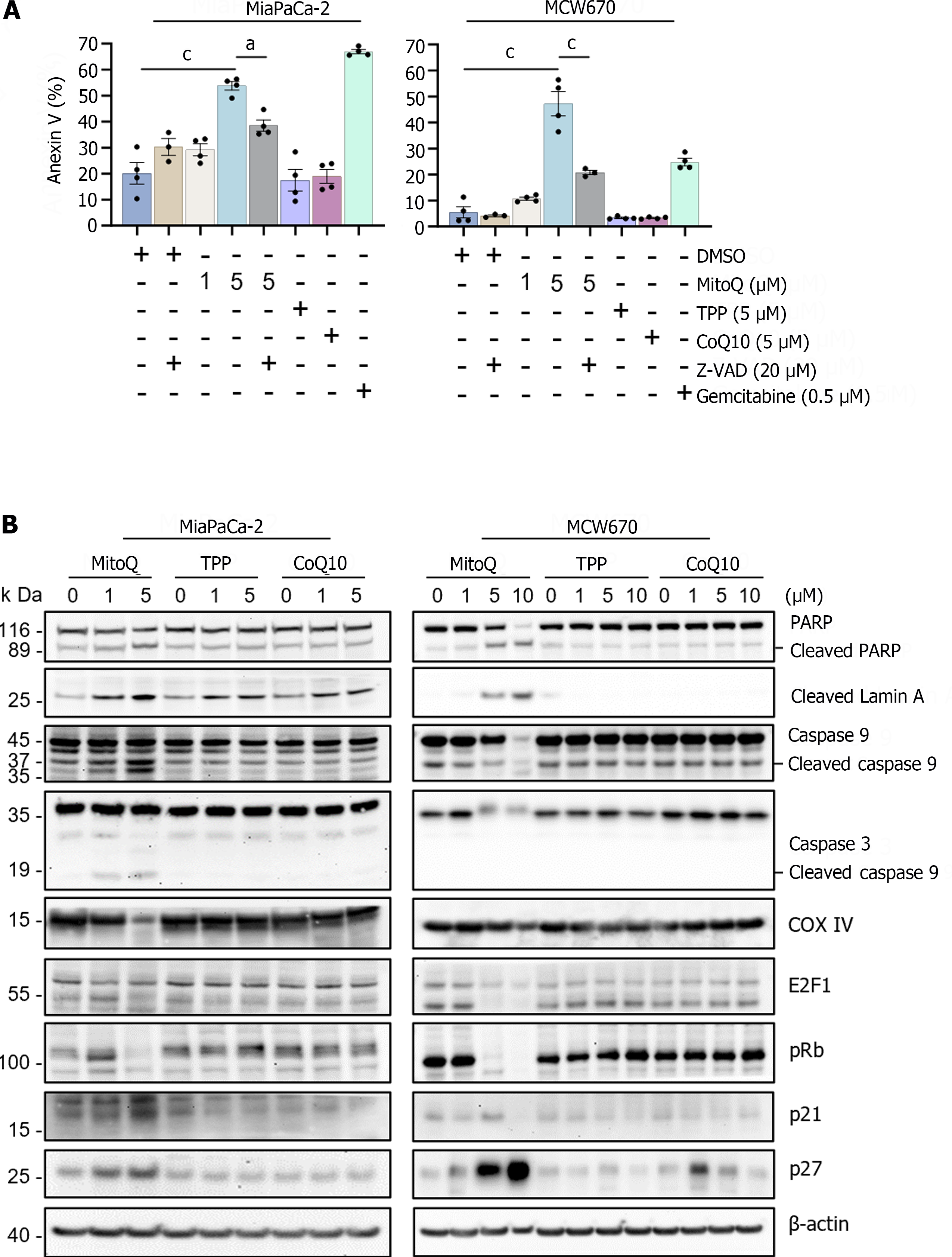Copyright
©The Author(s) 2024.
World J Gastroenterol. Feb 21, 2024; 30(7): 714-727
Published online Feb 21, 2024. doi: 10.3748/wjg.v30.i7.714
Published online Feb 21, 2024. doi: 10.3748/wjg.v30.i7.714
Figure 2 Mitochondria-targeted ubiquinone can induce caspase-dependent apoptosis in pancreatic adenocarcinoma cells.
A: Apoptosis analysis of cells treated with mitochondria-targeted ubiquinone (MitoQ), with or without Carbobenzoxy-valyl-alanyl-aspartyl-[O-methyl]-fluoromethylketone, for 24 h. CoQ10 is the functional moiety of MitoQ and triphenyl-phosphonium is the vehicle moiety. Gemcitabine is the positive control for apoptosis induction. Data (mean ± SEM, N ≥ 3) are expressed as the percentage of untreated controls. One-way ANOVA with Bonferroni post-tests; B: Western blot analysis of total lysates of cells treated as described. β-actin is the control for equal amounts of protein loading. aP < 0.05. cP < 0.001. MitoQ: Mitochondria-targeted ubiquinone; TPP: Triphenyl-phosphonium.
- Citation: Leung PY, Chen W, Sari AN, Sitaram P, Wu PK, Tsai S, Park JI. Erlotinib combination with a mitochondria-targeted ubiquinone effectively suppresses pancreatic cancer cell survival. World J Gastroenterol 2024; 30(7): 714-727
- URL: https://www.wjgnet.com/1007-9327/full/v30/i7/714.htm
- DOI: https://dx.doi.org/10.3748/wjg.v30.i7.714









